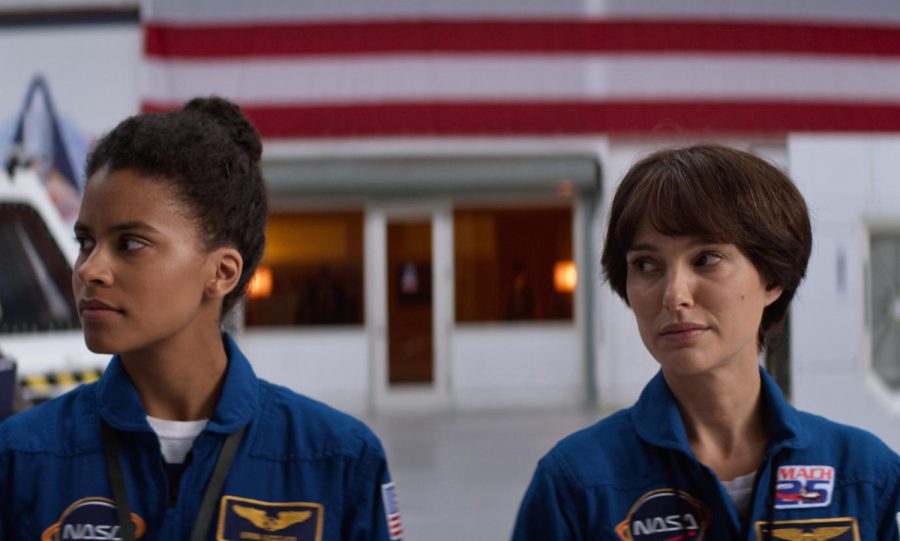Opinion: Outer space is no limit for misogyny
Lucy in the Sky highlights institutionalized sexism and empowers women to shoot for the moon.
Zazie Beetz, left, and Natalie Portman plays professional and romantic rivals in “Lucy in the Sky.” MUST CREDIT: Fox Searchlight Pictures
October 22, 2019
I reached my apartment in record time after leaving the theater — having power walked with some serious girl anthems — because the last quarter of Lucy in the Sky left me fuming, teary-eyed, and inspired. I was on top of the world, and no man was going to take that away from me.
This is the narrative we need, and Lucy Cola is the hero we have been looking for. It’s about time women went a little, as Cola could be interpreted in the film, “crazy.”
Valedictorian of her high school and college class, second-to-none in all that she does, Cola returns home from her Destiny space mission and is experiencing withdrawals from being back in a world so small. Yet, her hope reignites when she learns that she is in the running for the next Orion mission. It’s during this time; however, when she has an affair with a fellow astronaut, Mark Goodwin, and derails from a life that no longer suits the woman she is becoming.
As events unfold in sync with the unveiling of Cola’s newfound identity, she learns that she has been pulled as a viable candidate for her dream space exploration. Why? Because she’s too emotional and “it’s tough to do what we [men] do.”
Infuriating as this was to watch on screen, lead actress Natalie Portman delivers a fiery and calculating performance that doesn’t leave us defeated but buckled into the backseat as she races against the clock of institutionalized misogyny.
She leaves her husband not because he’s an awful man, but simply because he’s no longer the person she needs. Cola then departs with her niece and purchases some morally questionable materials at a local gas station, vowing to make right of how she was wronged.
Through the nerve-wracking ending, the film perfectly captures some of the minuscule and nuanced sexist behaviors of men. For example, Goodwin (who has now moved on to another woman) suggests that Cola talk to a therapist because she’s upset, and her commander uses her distress over her grandmother dying as a means to question her ability as an astronaut.
Cola’s removal isn’t a product of her talent. It’s a result of men belittling ambitious and successful women who are smarter, have worked harder, and are far more capable than they are.
Even at the climax, the film roots for the overachieving woman. Cola tells Goodwin’s new lover, “He’s not Einstein. You’re Einstein!”
Cola is not angry with the woman, but instead encourages her to be free of Goodwin because she can thrive all on her own. A powerful feminist scene, it’s also evident that Cola was never truly in love with the man. He was just a minor character in her new story.
The empowerment at play is perhaps best articulated when Cola poses the question, “Why would God create something that had to destroy itself in order to fly?” Referring to the takeoff mechanism of a space shuttle, it’s also understood to serve as the tagline of her journey.
Cola had to destroy who she was in order to become who she was meant to be, and learned to be her own brand of woman in the process.
Columns reflect the opinions of the authors and are not necessarily those of the Editorial Board, The Daily Iowan, or other organizations in which the author may be involved.



